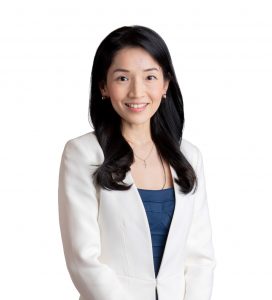Glaucoma - The Silent Thief of Sight
What is Glaucoma?
Glaucoma is a condition that affects the optic nerve of the eye. It is usually caused by elevated intraocular pressure (the fluid pressure in the eyeball). It can cause progressive loss of vision, and eventual blindness if left undiagnosed and untreated.
Glaucoma is Singapore’s commonest cause of permanent blindness. Of those aged over 50 years, 3% have glaucoma. This percentage increases with age and it affects almost 10% of those over 70 years old.
Types of Glaucoma
There are 2 main types of glaucoma: open angle glaucoma and closed angle glaucoma.
Open Angle Glaucoma
Open angle glaucoma is also the most common type of glaucoma. Affecting the elderly and the middle-ages, this form of glaucoma is usually painless and affects the peripheral and night vision.
Closed Angle Glaucoma
On the other hand, closed angle glaucoma can occur suddenly due to the rapid rising of fluid pressure in one eye. It mostly affects the elderly and middle-aged Chinese women.
What Are the Signs and Symptoms of Glaucoma?
Open Angle Glaucoma
Glaucoma is often termed the Silent Thief of Sight as there are usually no symptoms until the late stages. It is often painless and affects the peripheral vision first. As such, patients often do not realize there is a problem until they have lost much of their vision (“tunnel vision”) and the disease is advanced. Up to 72% of glaucoma sufferers are unaware of their condition at the point of diagnosis and up to 4% of these patients were already blind in 1 eye.
Closed Angle Glaucoma
In some instances of acute onset closed angle glaucoma, due to the sudden rise in fluid pressure, the patient might experience eye pain, headache, nausea and vomiting as well as misty or blurred vision.

What Are the Causes and Risk Factors for Glaucoma?
While glaucoma can be caused by genetic factors, there are other risk factors such as:
- Age: most commonly above the age of 40
- Gender: Closed angle glaucoma is more common in females
- Ethnicity: Closed angle glaucoma is more prevalent in those of Chinese ethnicity
- Refractive error (spectacle degree)
- Shortsightedness (Myopia) is linked to open angle glaucoma
- Longsightedness (Hyperopia) is linked to closed angle glaucoma
- Long term steroid use for other medical conditions e.g. asthma puff inhalers, steroid creams for the skin
- Obstructive sleep apnoea (OSA)
Glaucoma usually develops in both eyes, however, one eye can be more severely affected than the other.
Can Glaucoma Be Cured?
There is no cure for glaucoma, however, the condition can be managed.
Treatment Options for Glaucoma
The mainstay of glaucoma treatment is the use of eyedrops to control the intraocular pressure. Although this cannot ‘cure’ glaucoma, it is an effective means of controlling progression of the disease to prevent further loss of vision. Laser procedures can also be performed in the clinic to help to manage the intraocular pressure. At times, surgery might be required to achieve good eye pressure control.
Acute onset closed angle glaucoma can be prevented with a laser procedure. However, early detection and treatment is still the mainstay of glaucoma management.
What Happens If Glaucoma Goes Untreated?
Left untreated, glaucoma leads to progressive, irreversible damage to the optic nerve that can result in permanent blindness.
When Should You Consult a Doctor for Glaucoma?
Glaucoma screening is simple and effective, and early detection can save your sight. As glaucoma is a silent disease, regular eye screening is recommended. Adults over the age of 40 years should see their eye doctor regularly, particularly if there are additional risk factors such as those mentioned above (e.g. family history of glaucoma). Annual or semi-annual reviews are usually advised depending on the risk profile.
Book an appointment with our Senior Consultant Ophthalmologist, Dr Livia Teo, to get started on your eye screening journey!

Senior Consultant Ophthalmologist
Nobel Eye & Vision Centre (Gleneagles Hospital)
Our Specialist
Dr Livia Teo is a Senior Consultant Ophthalmologist who practiced at the Singapore National Eye Centre for 15 years prior to joining Nobel Eye and Vision Centre.
Dr Teo has expertise in managing a range of eye conditions, including cataract, glaucoma, age related macular degeneration, diabetic retinopathy, myopia and dry eyes. She has a special interest in paediatric and adult ptosis and related eyelid conditions, ophthalmic plastic and reconstructive surgery of the face and orbits, and lacrimal surgery.
To book an appointment,
Call: 6990 4571






